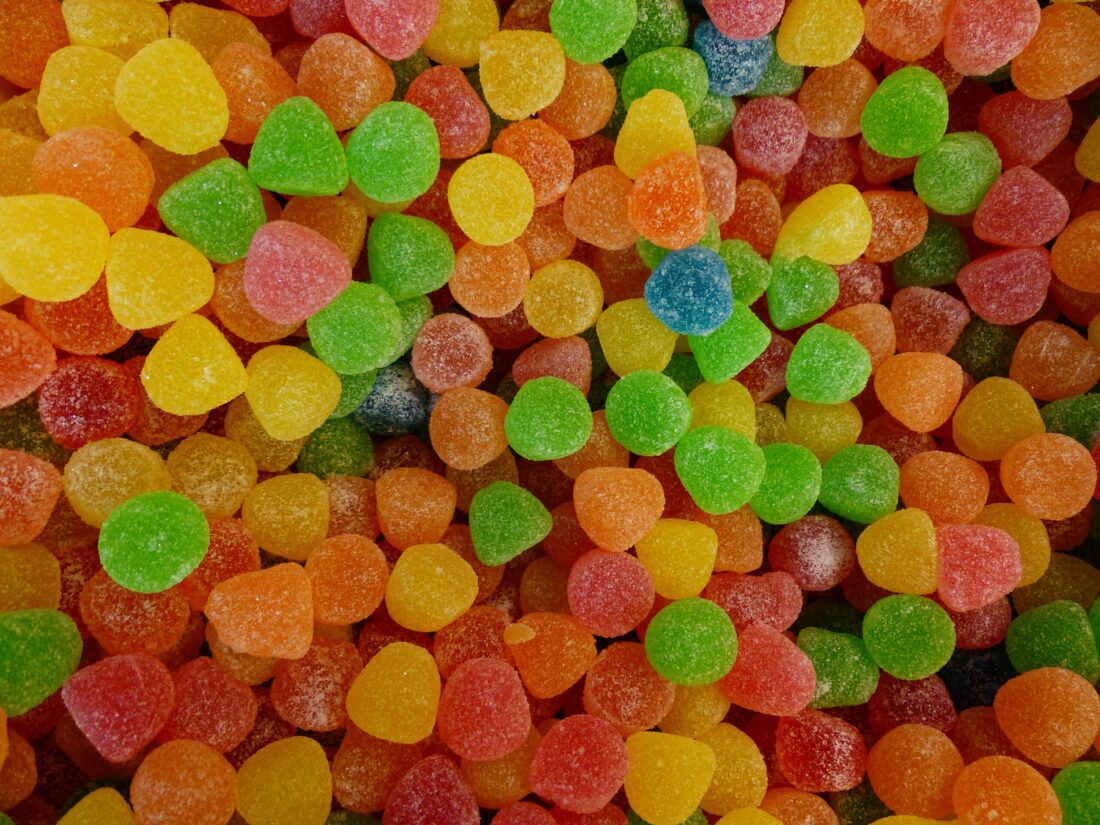I received a blog request recently on discussing the damaging effects Sugar, colours and preservatives are having on our children.
I personally believe in the 80/20 rule and everything in moderation except…. when it comes to children and refined sugar. A lot of pre-packaged food also contains preservatives and colours which can be highly addictive.
The “sometimes treat” soon becomes the “all the time” treat. Before we know it, we are using sweets as a lunch box filler, as a reward for good behaviour or to avoid a tantrum. Why? because in our time poor schedules, it ticks a box.
It’s the sweet poison our kids love, but what is sugar really doing to our children?
For some time, there has been much discussion in the media about the amounts of sugar the average adult eats on a daily basis. Unfortunately, we have heard far less about the enormous amounts of sugar our children are consuming and the huge impact this can have on their weight, metabolism and dental health long term.
So how much sugar is your child eating? You may be surprised where it is slipping into their diets.
How Much Sugar Should Children Have?
Small amounts (20-30g) of natural sugars consumed each day as part of a healthy diet poses no real health issues.
High sugar foods increase blood glucose levels over time, increasing the desire we have for sweet foods and leaving our teeth more vulnerable to tooth decay.
As a general rule of thumb, the less added sugar we consume in our diet the better;
- Choose packaged foods that DO NOT have sugar on the ingredient list; or
- Look for products that contain less than 10g of sugars per 100g, or less than 5g per serve.
This is certainly a step in the right direction. When it comes to added sugars, the less we consume the better, and less than 20-30g of added sugars per day for children is ideal.
Different Types Of Sugar
- Fructose is fruit sugar and is found in fruit
- Maltose is malt sugar and is found in germinating grains. You will find it in malted milkshakes and malted candy.
- Lactose is milk sugar and is found in milk
- Dextrose is made synthetically from starch and is called “corn sugar.”
- Sucrose is refined sugar or table sugar made from sugar cane and sugar beet (and almost all sugar beets are genetically modified which makes the sugar even more dangerous).
- Glucose sugar found in fruits and vegetables and is usually present with other sugars. It is the key material found in the metabolism of all plants and animals.
When you consider the following, you can see why sugar’s such a difficult addiction to kick:
- Sugar is 8x more addictive than cocaine.
- The average Australian consumes 22 kilos of hidden sugar every year.
- Many manufacturers tell us that sugar is made from a “natural” source (sugar cane and sugar beet) so we think it’s okay. But, so are heroin and opium made from “natural” sources. And all of these “natural” things are processed into something dangerous to our health.
Glucose V’s Sucrose
Glucose and sucrose have totally different chemical structures and both enter and affect the body in profoundly different ways.
Glucose sustains our lives; sucrose slowly poisons us by degrees.
Sucrose is refined sugar—that white stuff we consume every day—and is not digested in the mouth or the stomach but passes directly and very quickly into the lower intestines and to the bloodstream. From there the negative effects of sugar begins creating havoc on every organ of our bodies.
10 Reasons Why Kids Should Avoid Sugar
When you think that 70%of our serotonin is produced in our gut and our second brain is located in our gut, it’s easy to assimilate that gut health is key to healthy, happy, focused children.
1. SUPPRESSES THEIR IMMUNE SYSTEM
- Sugar can suppress your child’s immune system and compromise its defenses against infectious disease. This means that your child can be susceptible to all kinds of illnesses, colds, flu, etc. SUGGESTION: Replace those sugary snacks with fruit such as blueberries (builds the brain),bananas (helps with stress), or raw honey on a slice of Ezekiel bread. Keep in mind that honey is sugar but it is real food and is loaded with important immune-building nutrients.
2. CAUSES HYPERACTIVITY & LOWERS CONCENTRATION LEVELS
- Sugar can cause a rapid rise of adrenaline in children which in turn will cause a child to experience hyperactivity, anxiety, difficulty concentrating, and crankiness. SUGGESTION: Dump the sugary cereals for breakfast and fast food for lunch. Give your children eggs for breakfast—the choline increases brainpower. Pack a banana in their lunch—they help kids concentrate and stay alert throughout the day because of the potassium.
3. WEAKENS EYE SIGHT
- If your kids are consuming a lot of sugar it will increase their blood sugar and cause the lens of the eye to swell which will change their ability to see. SUGGESTION: Give your children foods containing lutein and zeaxanthin such as broccoli, avocadoes, eggs, and carrots. Oils such as cod liver oil are fabulous for improving eye sight.
4. CAUSES STOMACH ACHES, INDIGESTION & ACIDIC DIGESTIVE TRACTS
- Sugar can cause many problems with the gastrointestinal tract including an acidic digestive tract, indigestion, and mal-absorption (not absorbing important vitamins and minerals). This can disrupt your child’s ability to learn, understand, and absorb information. SUGGESTION: Dump the sugary snacks from their diets and add these calming stomach foods to their diets: bananas, brown rice, sweet potatoes, yogurt and oatmeal.
5. LINKED TO ASTHMA
- Heavy diet of sugar causes inflammation and can cause the narrowing of the airways and mucus production resulting in asthma symptoms, wheezing and shortness of breath. SUGGESTION: Exchange the sugary sweets for fruits such as blueberries, strawberries, or kiwi.
6. CAN CAUSE DIABETES
- When kids eat too much sugar it can cause a decrease in their insulin sensitivity causing abnormally high insulin levels and eventually diabetes. SUGGESTION: Role model for your children. Do they see you drink soda, eat sugary snacks & grab takeout on a regular basis or do they see you cook healthy meals at home and eat plenty of healthy grains, fruits, veggies and drink water? Be their guide and example!
7. RELATED TO FOOD ALLERGIES
- Yes, kids can be allergic to sugar and have sugar allergies. SUGGESTION: This type of situation is most likely a rare occurrence but is something to be aware of. If you have a child who is susceptible to allergies, make certain you are carefully watching his/her diet. Make it as sugar-free as possible.
8. CONTRIBUTES TO ECZEMA
- Intake of foods high in sugar such as processed foods and fast foods because foods high in sugar can trigger eczema flare-ups. Why? Because sugar causes insulin levels to spike which results in inflammation. SUGGESTION: If your child suffers from eczema, eliminate as much sugar from their diets as possible. Give your child 1 tablespoon of raw apple cider vinegar or 1 teaspoon of lemon flavoured cod liver oil, daily.
9. ISSUES WITH BOWEL MOVEMENTS
- Some sugars stimulate the gut which pulls out water and electrolytes and loosens bowel movements. SUGGESTION: Even though fruit is wonderful and is filled with important vitamins, minerals, and phytochemicals, too much is also a problem. Although fructose is safer than sucrose, both consumed in large amounts create problems in our bloodstream. Everything in moderation.
10. LINKED TO LEARNING DIFFICULTIES
- Children who eat diets high in refined sugar and saturated fat can damage the hippocampus area of their brain, responsible for memory and learning. SUGGESTION: Educate your children from a young age, so by the time they reach their teens they understand the dangers of drinking sugary sodas, candy, or other sweets.
Please comment if you have a topic that you would like me to blog about.
Until next time, be the change you want to see.
Honey-Nicodah Robbinson
Also please follow our Facebook and Instagram Pages and stay up to date.


